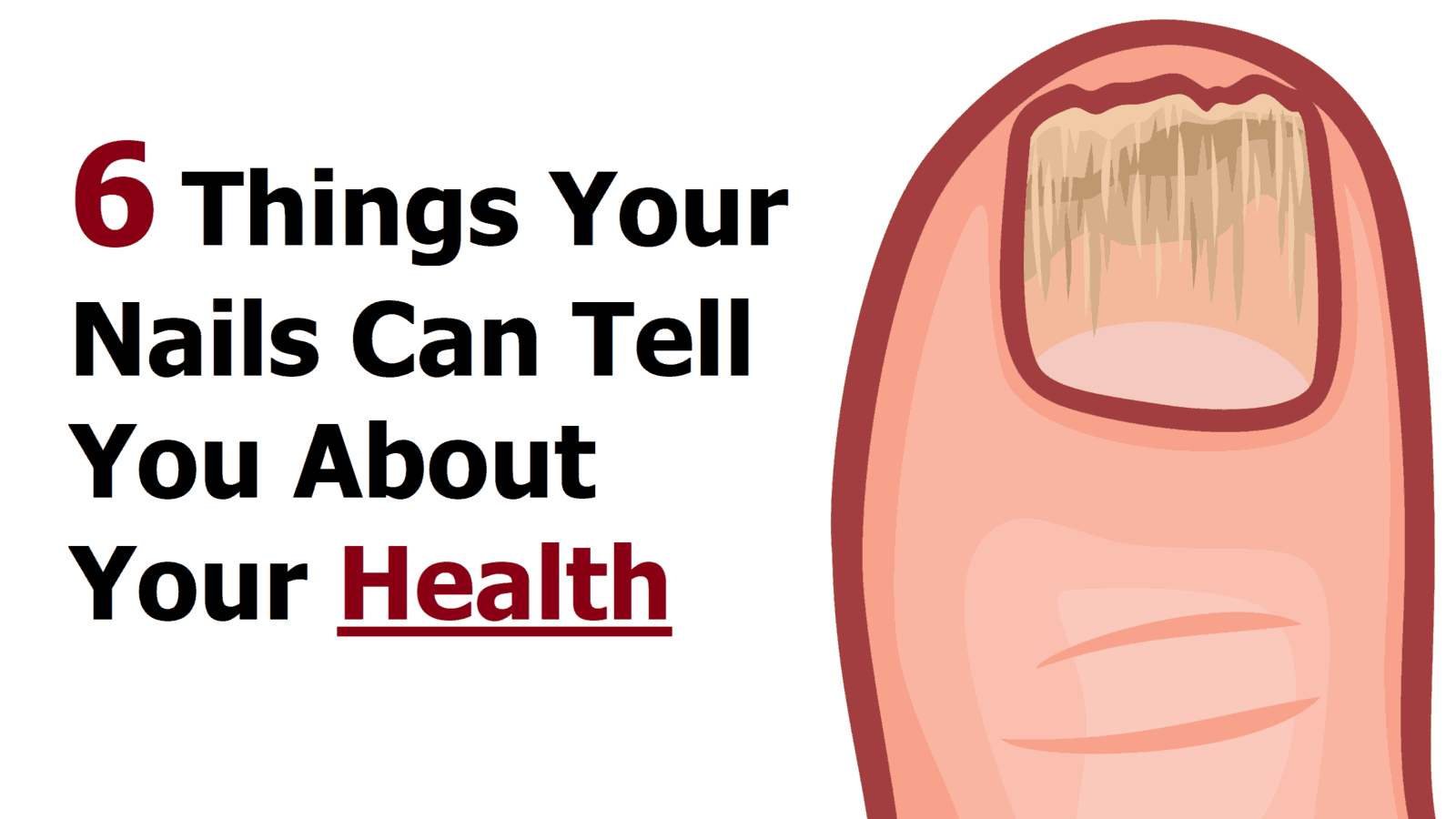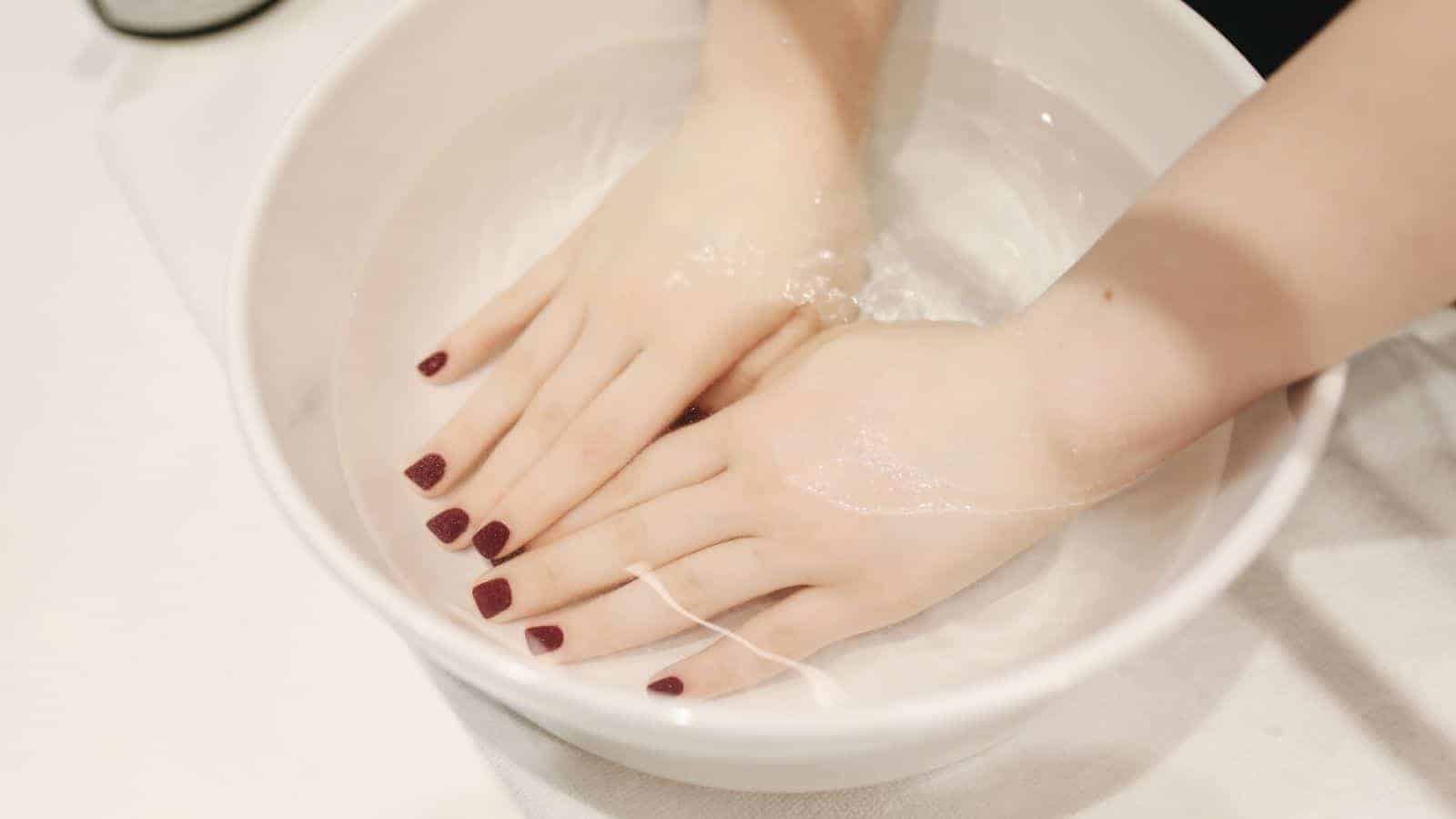Many of us look, trim, and – yes – bite on or chew (please stop!) without giving our nails much thought. But that could be a mistake, as healthy nails often reveal good health. On the other hand, dull, dry, splitting, or easily breaking fingernails might be an early sign of a health issue brewing.
But you don’t need to take our word for it. Here’s what the professionals say:
“Nails often reflect our general state of health. Changes in the nail, such as discoloration or thickening, can signal health problems including liver and kidney diseases, heart and lung conditions, anemia, and diabetes.”~ American Academy of Dermatology
Let’s take a step back and ask: what are nails, exactly?
Wikipedia provides an excellent definition:
“A nail is a horn-like envelope covering the tips of the fingers and toes in most primates and a few other mammals…Fingernails and toenails are made of a tough protective protein called alpha-keratin.”
Keratin is the same protein product in your skin and hair.
Now that we’ve got the mini-physiology lesson, let’s discuss six things that nails can reveal about your health.
What Do Your Nails Reveal About Your Health? The Answers Might Surprise You…

1. Dry, Cracked, or Brittle Nails
Dry, cracked, or brittleness indicates exposing your hands to frequent water submersion. If you’re a dishwasher, diver, fisherman, or swimmer, you’ve likely experienced this symptom occasionally.
It’s also worth mentioning that dryness may reveal a Vitamin A, B, or C deficiency. Brittleness may result from frequent use of nail polish remover or chemical exposure (from household cleaning products, for example.)
2. Parallel Ridges
Parallel ridging, known as ‘Beau’s lines,’ shows an abnormality in growth. Beau’s lines may be a sign of diabetes, psoriasis, or a zinc deficiency. They can also be the product of nail trauma or a high fever that sometimes accompanies a severe illness.
3. Puffy Fold
If the skin surrounding the cuticles is puffy and red, this is referred to as nail fold inflammation. Infection can cause nail fold inflammation, as can a connective tissue disorder such as lupus.
4. “Clubbing”
Clubbing occurs when the fingertips become engorged and your nails curve downward. It’s common for them to appear almost sickly white, which is often a sign of low oxygen in the blood. Clubbing could signify an internal problem, such as heart disease, inflammatory bowel disease, kidney disease, and lung disease.
5. Yellow Nails
A fungal infection most commonly causes yellowing. This often occurs after a viral infection, which weakens the immune system. The infection starts in the skin surrounding the nailbed and moves to under the nail plate. According to NIH, topical treatments tend to be ineffective, so connect with your doctor for a treatment plan.
6. Bluish color
Nails – and sometimes, fingertips – that appear blue can be a serious sign that the body is not getting enough oxygen. A bluish color may indicate a lung problem, such as emphysema, or a heart problem.
Final Thoughts: When it Comes to Nails, A Little Prevention Goes a Long Way
AAD gives the following seven recommendations for keeping them healthy:
- Keep them clean and dry. This prevents bacteria from accumulating below the surface.
- Cut them correctly– straight across and rounded slightly in the center. Proper cutting will help keep them healthy and prevent ingrown nails.
- Soak your feet in warm salt water for five to ten minutes. This will make them easier to trim properly.
- Shoes should fit properly – not too snug or too loose. It helps to consult with an expert in determining the proper fit, such as a podiatrist.
- Don’t bite them, as this can transfer infectious bacteria between your fingers and mouth. Nail-biting can also damage the skin around your fingers, allowing infections to enter.
- Apply a moisturizer, especially after removing polish or any other product containing chemicals.
If you experience recurring problems, it is advisable to seek advice from a medical specialist. Dermatologists specialize in diagnosing and treating skin, fingernail, and hair disorders.




















